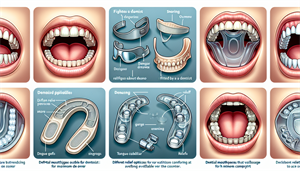
Discover What Causes Snoring in Women and How to Stop It
Are you tired of waking up feeling groggy and unrested due to snoring? If so, you’re not alone. Snoring affects millions of women worldwide, and it can be disruptive to both your sleep and your overall well-being. Discover what causes snoring in women, the lifestyle factors influencing it, and the medical conditions that may be linked to it. Most importantly, learn about the various strategies that can help you stop snoring and finally enjoy a peaceful night’s sleep.
Key Takeaways
Common causes of snoring among women include hormonal fluctuations, weight increase, sleeping difficulties and lifestyle factors. Weight loss, mouth and throat exercises, snoring mouthpieces and CPAP devices can help reduce snoring in women. Obstructive sleep apnea (OSA), hypothyroidism and nasal congestion are medical conditions linked to female snoring that should be addressed by a healthcare provider.
Understanding Female Snoring: Common Causes
Snoring occurs when the sound is produced due to the vibration of tissues in the airway during breathing while asleep. Snoring is prevalent among women, with approximately 28% of adult females snoring habitually. The causes snoring in women can be attributed to pregnancy, menopause, and weight gain, which can lead to partially blocked airways and disrupted sleep. However, it is important to understand that snoring normal for some individuals and may not always indicate a serious health issue. Given the prevalence of snoring among women, grasping the factors that cause it becomes important. These factors may include: Hormonal fluctuations Weight increase Sleeping difficulties Drinking alcohol Smoking Moreover, exhaustion can result in the relaxation of muscle tissues, including those in the larynx, thus potentially causing snoring and increasing the risk of obstructive sleep apnea snoring.
Pregnancy and Snoring
Pregnancy is a common time for women to experience snoring due to hormonal changes, weight gain, and swollen nasal passages, particularly during the second and third trimesters. In fact, it is estimated that more than 30% of women commence snoring during their second trimester. This is because weight gain, hormonal alterations, and augmented blood flow during pregnancy can all contribute to snoring. One of the potential dangers associated with snoring during pregnancy is the increased risk of high blood pressure, which can pose a threat to both the mother and the unborn child, especially when obstructive sleep apnea occurs. Consulting with a sleep medicine specialist may be helpful in addressing snoring issues during pregnancy, ensuring the safety of both the mother and the baby.
Menopause and Its Effects on Snoring
Menopause can increase the risk of snoring in women due to hormonal changes, decreased muscle tone in the throat, and weight gain. Menopause has been linked to a decrease in muscle tone in the throat, which can lead to female snoring. Sleep-disordered breathing during menopause may manifest as: Snoring Hot flashes Insomnia Mood disorders Hence, women undergoing menopause should be cognizant of the potential snoring increase and address it proactively.
Weight Gain and Its Role in Snoring
Excess weight, particularly around the neck, can constrict air passages and lead to snoring in women. Obesity and surplus weight can bring about the accretion of fat in the neck region, which can constrict the airways and impede airflow during sleep, resulting in snoring. Moreover, weight gain can contribute to the emergence of sleep apnea, a condition characterized by pauses in breathing during sleep. Maintaining a healthy weight thus becomes key in reducing both the likelihood and intensity of snoring among women.
Lifestyle Factors That Influence Snoring in Women
Lifestyle factors such as alcohol consumption, smoking, and sleep position can influence snoring in women. Alcohol consumption can relax the muscles in the throat, leading to airway obstruction and snoring. Smoking can irritate the airways and cause inflammation, contributing to snoring. Additionally, sleeping on one’s back can lead to the collapse of the airway, resulting in snoring. Making changes to these lifestyle factors can help reduce snoring and improve sleep quality.


